
More Helpful Content
When it comes to choosing the right fulfillment partner, it’s crucial to select one that fits your business needs, budget, and growth goals. ShipBob vs ShipMonk are two of the most popular third-party logistics (3PL) providers available, each with its own strengths and challenges. If you're debating between these two, this guide will break down everything you need to know to make an informed decision.
In this article, we’ll dive deep into a detailed comparison of ShipBob vs ShipMonk, covering essential aspects like fulfillment services, pricing structures, minimum order requirements, customer support, and service level agreements. Additionally, we'll review the pros and cons of each provider to help you decide which service is best suited for your unique needs.
Here's what you'll find in this guide:
Let’s explore ShipBob and ShipMonk in detail to help you decide which provider can drive your business forward.
In this section, we’ll break down the essentials of ShipBob vs ShipMonk, highlighting their core features, pricing, and unique capabilities to give you a quick, clear comparison. For a quick snapshot of ShipMonk vs ShipBob, here’s a comparison of their primary offerings:
| Feature | ShipBob | ShipMonk |
| Order Fulfillment Center Rating | 4.47 | 3.79 |
| Monthly Minimum Requirement | $250 after first 3 months | $250 minimum, applies immediately |
| U.S. Warehouse Locations | 35 | 8 |
| International Warehouse Locations | 8 | 3 |
| Shipping Partner Options | FedEx, UPS, USPS, DHL, plus additional last-mile carriers | FedEx, UPS, USPS, DHL, DHL Express, Passport |
| Error Rate | 0.05% | 10% |
| Amazon Seller-Fulfilled Prime | Eligible | Not eligible |
| Average User Review | 4.0 / 5 | 3.34 / 5 |
| On-Time Order Rate | 99.96% within SLA | 95% within two business days |
| Integrations | Shopify, Shopify Plus, eBay, TikTok, Walmart, WooCommerce, etc. | Magento, PayPal, Shopify, WooCommerce, BigCommerce, Squarespace |
Whether you’re looking to scale quickly across multiple regions with ShipBob or need dedicated support and custom packaging options with ShipMonk, this quick overview should help you get a sense of which provider fits your needs best.
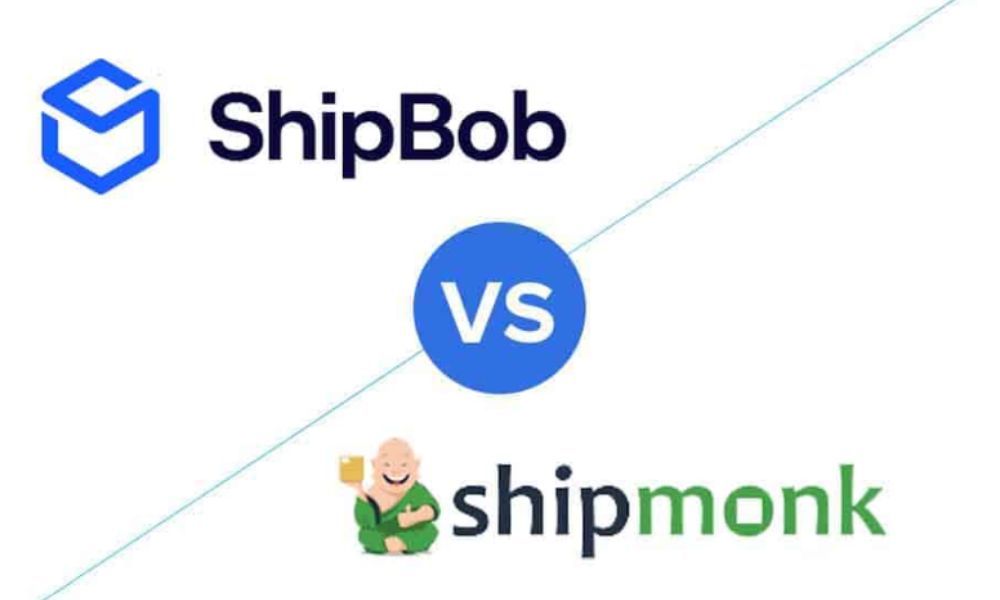
To start with the basics, ShipBob vs ShipMonk both provide robust fulfillment services that support ecommerce and B2B needs. However, each offers unique features that cater to different business models and order fulfillment requirements. Here’s a closer look at the main offerings to help you decide which service best suits your business.
| Feature | ShipBob | ShipMonk |
| Omnichannel & B2B Fulfillment | Supports both ecommerce and B2B, including EDI compliance, making it a great choice for mixed business models. | Provides B2B fulfillment ideal for companies selling wholesale or through retail channels. |
| Subscription Box Fulfillment | Specialized experience with subscription boxes, ensuring timely deliveries. | Not specifically highlighted for subscription fulfillment but supports customizable eCommerce options. |
| Crowdfunding Fulfillment | No dedicated crowdfunding services. | Dedicated crowdfunding fulfillment team to handle bulk orders from campaigns. |
| Custom Packaging & Kitting | Custom packaging options available, as well as kitting services for unique branding and order types. | Provides custom packaging and kitting, though more basic than ShipBob’s tailored approach. |
| Implementation Fees | Up to $1,000, with limited support for smaller businesses in the Startup Growth Plan. | None specified, allowing flexibility for brands with lower budgets. |
| Receiving Fees | $25 for the first 2 hours, then $45 per additional hour, making costs harder to estimate. | Free receiving, which can be beneficial for businesses with high incoming inventory volumes. |
| Storage Fees | Known for high storage fees, especially for large items, which may impact brands with extensive SKUs. | Generally more affordable, making ShipMonk an appealing choice for brands with large storage needs. |
| Returns Processing | Standard returns processing available but not specifically discounted. | Low-cost returns processing, beneficial for brands with higher return rates. |
Key Takeaways:
This breakdown of ShipMonk vs ShipBob provides an at-a-glance view of which fulfillment service aligns best with your brand’s operational and financial needs.
When comparing ShipBob vs ShipMonk on minimum order volume, there are notable differences that can significantly impact startups, small businesses, and even high-volume companies. Each provider’s policy affects cost and flexibility, especially for businesses just getting off the ground or testing new markets.
| Feature | ShipBob | ShipMonk |
| Minimum Order Volume | Growth Plan for under 400 orders/month | No minimum order volume |
| Pick-and-Pack Fee | No minimum specified | $250 minimum fee, regardless of volume |
| Best For | Startups with moderate growth | Small businesses or new startups |
Key Takeaways:
In short, for ShipMonk vs ShipBob, consider ShipMonk if you’re a newer business with low or inconsistent order volume. If you’re on a growth trajectory and close to 400 orders a month, ShipBob’s Growth Plan could be a more sustainable choice.
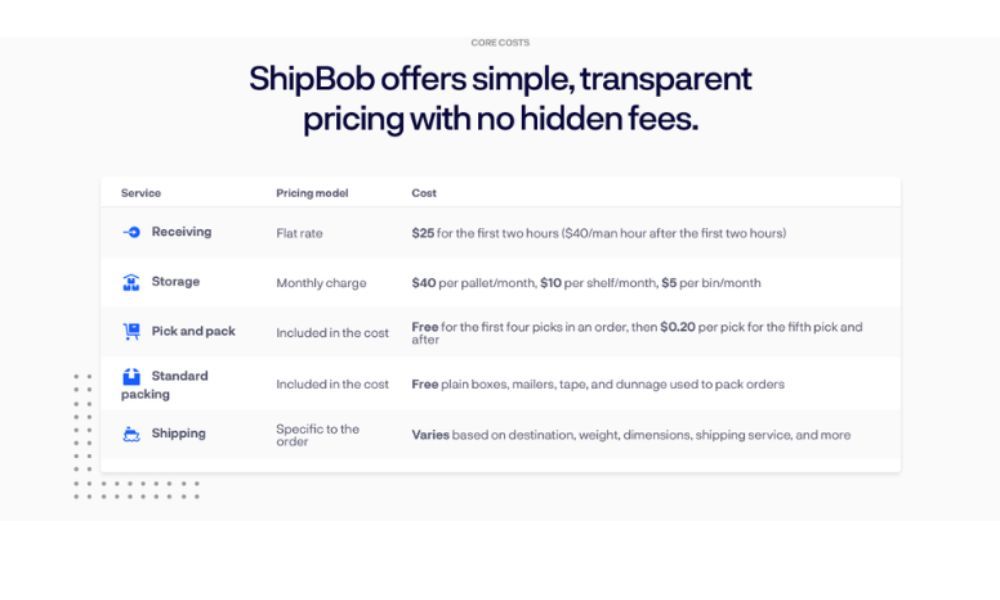
In this section, we’ll dive into their pricing structure, including key factors like storage fees, pick-and-pack costs, and additional services such as kitting and returns processing. Let’s break down the pricing and compare how these two platforms stack up against each other
| Feature | ShipBob | ShipMonk |
| Onboarding & Implementation | $975 for full package; Free on Growth Plan | Free |
| Inbound Shipping | Discounted rates available | Discounted rates available |
| Receiving Fees | $35 for the first 2 hours; $45 per person-hour after | Free with guidelines; Starts at $300 for 20' container |
| Storage Fees | $40/pallet, $10/shelf, $5/bin/month | $25/pallet, $1–$4/bin/month |
| Pick & Pack Fees | $0 for first 4 items; $0.25 per additional pick | $1.80–$3.00 for first pick; $0.35–$0.75 per extra item |
| Packaging Materials | Free | $0.15–$2.00 per item |
| Promotional Inserts | $0.20 per insert | $0.20 per insert |
| Shipping Fees | Discounted rates available | Discounted rates available |
| Returns Fees | $3 per order + label fee | $2 per order + $0.50 per item + label fee |
| Special Projects | $45 per person/hour | $45 per person/hour |
| Kitting Fees | Detailed kitting fees based on action (e.g., $0.56 for constructing boxes) | Subscription box pricing based on volume (starts at $2.50 per box) |
When it comes to customer support, ShipBob vs ShipMonk provides different levels of service and availability. Both companies offer multiple channels of communication, but the response times, support quality, and availability hours vary. Here's a comparison of how each handles customer assistance:
| Feature | ShipBob | ShipMonk |
| Support Channels | Phone, Live Chat, Email | Phone, Live Chat, Email |
| Support Hours | Phone: Mon-Fri, 9 a.m. to 5 p.m. CST; Live Chat: 7 days, 6 a.m. to 10 p.m. | Mon-Fri, 9 a.m. to 8 p.m. EST |
| Avg. Response Time | 1.23 hours | 4 business hours |
| Dedicated Account Representative | No (outsourced support team) | Yes, assigned “Happiness Engineer” |
| Reported Customer Complaints | Issues with outsourced support, slow resolution | Complaints about unresponsiveness and service migration difficulties |
| Overall Support Quality | Fast response times, but some report poor issue resolution | Efficient response, but some dissatisfaction with support effectiveness |
| Promotional Inserts | $0.20 per insert | $0.20 per insert |
| Shipping Fees | Discounted rates available | Discounted rates available |
| Returns Fees | $3 per order + label fee | $2 per order + $0.50 per item + label fee |
| Special Projects | $45 per person/hour | $45 per person/hour |
| Kitting Fees | Detailed kitting fees based on action (e.g., $0.56 for constructing boxes) | Subscription box pricing based on volume (starts at $2.50 per box) |
Both platforms have room for improvement in their customer support, but ShipBob may be a better fit for those who prioritize faster responses, while ShipMonk offers more hands-on support through dedicated representatives.
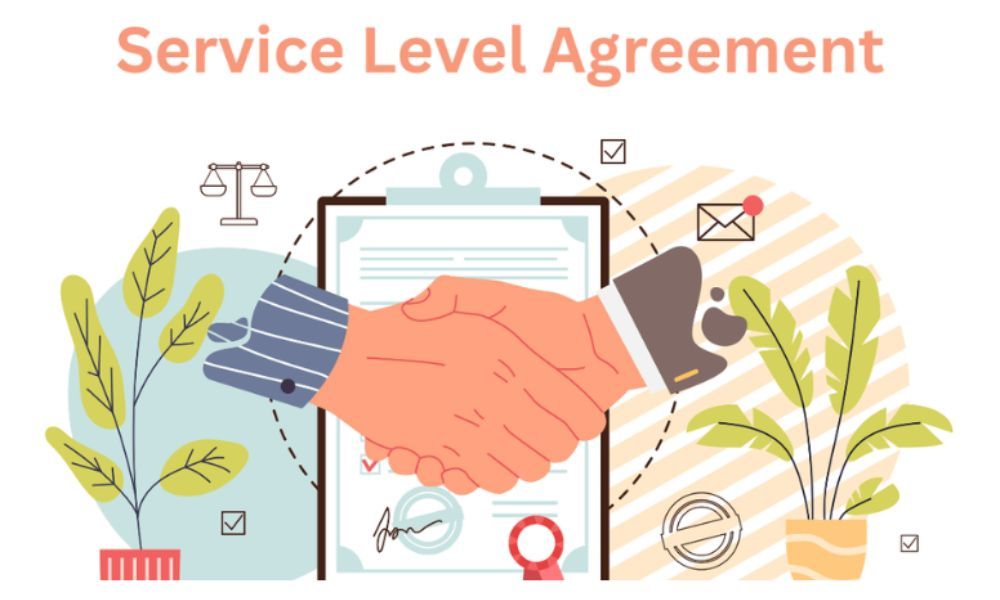
Service Level Agreements (SLAs) are crucial for setting expectations and ensuring reliability in eCommerce fulfillment. Both ShipBob vs ShipMonk offer SLAs, but the terms and guarantees differ in key areas. Let’s break down how each provider handles SLAs, including order accuracy, receiving, and inventory management.
| Feature | ShipBob | ShipMonk |
| Order Accuracy | No specific SLA guarantee; no compensation for errors | 100% order accuracy guarantee; compensation for errors |
| Fulfillment Turnaround Time | No guaranteed SLA; performance monitored internally | No same-day guarantee, but reasonable expectations set |
| Receiving Time | No SLA for receiving; delays are possible | Must meet receiving guidelines; typically 3 days for inventory put-away |
| Inventory Accuracy | No liability for inventory delays or errors | Limited liability for inventory errors, up to $10/unit (unless enrolled in Verified Inventory) |
| Shrinkage Liability | No liability for shrinkage unless covered in specific agreements | $10/unit for full cartons; $250/unit with Verified Inventory |
| Compensation for Missed SLAs | No reparations for missed SLAs or delays | Compensation for errors and breakage; no same-day guarantee but some reimbursement available |
Key Takeaways:
Overall, ShipMonk appears to offer more detailed SLAs and guarantees than ShipBob, but both providers have room for improvement in terms of fulfilling their commitments in a timely and predictable manner.
When deciding between ShipBob vs ShipMonk, it’s important to weigh the benefits and drawbacks of each provider. Here’s a closer look at what ShipBob brings to the table:
When comparing ShipMonk vs ShipBob, ShipMonk has its own strengths and weaknesses. Here's a breakdown of what you can expect when you choose ShipMonk for your eCommerce business:
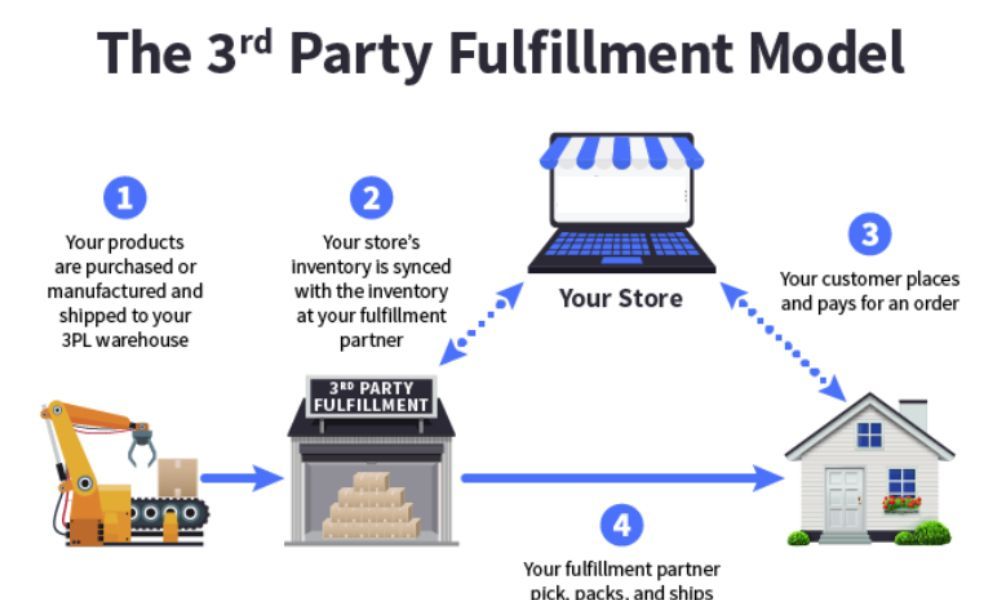
Choose ShipBob If:
Choose ShipMonk If:
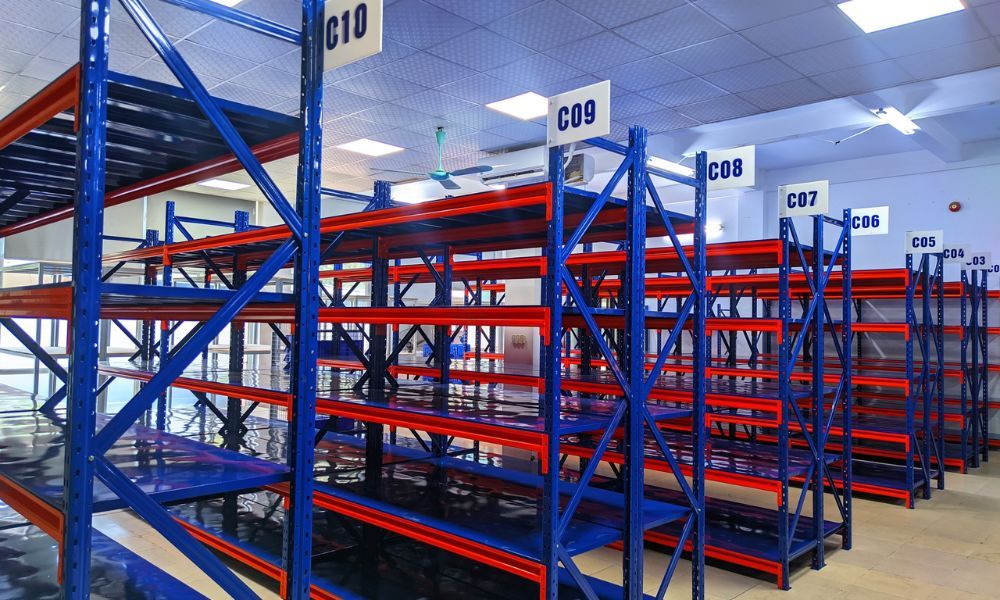
When it comes to eCommerce fulfillment, EFEX Fulfillment stands out from other providers like ShipBob vs ShipMonk with its all-in-one solution designed to help businesses scale efficiently and effectively.
Whether you’re just starting or already growing, EFEX offers a hassle-free, customer-focused service that takes care of everything so you can focus on what really matters—selling more. At EFEX, we handle everything from start to finish:
Delivery – Fast and accurate delivery, increasing customer satisfaction and boosting sales.
This end-to-end process ensures you can meet high customer demands, scale operations, and focus on your core business strategy. Plus, EFEX helps businesses increase sales revenue by 38% thanks to our industry expertise and reliable fulfillment process.
What Sets EFEX Apart from ShipBob and ShipMonk?
Choosing the right fulfillment provider is essential for your business growth, and understanding the ShipBob vs ShipMonk comparison helps you make an informed decision. While both ShipBob and ShipMonk offer solid services, EFEX Fulfillment takes it a step further with a flexible, cost-efficient solution that focuses on faster delivery, higher accuracy, and significant cost savings.
At EFEX, we’re committed to simplifying your fulfillment process, improving customer satisfaction, and helping you scale your business effectively. Whether you’re looking to save on operational costs or need faster delivery, we’re here to make it happen.
Ready to take your business to the next level? Visit our homepage for more information, or contact us to get started. Join our thriving Facebook community to connect with other eCommerce sellers and share tips, insights, and growth strategies.
For more insights on retail and B2B fulfillment, check out our blog: Guide to Retail and B2B Fulfillment | B2C vs B2B Fulfillment.
Let EFEX handle your fulfillment while you focus on what matters—selling more and growing your business!


